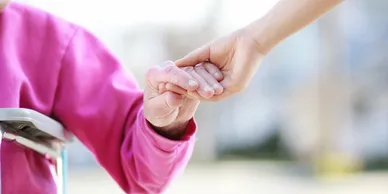DISCIPLINES

Medical Director
Our medical directors work to connect our patients with the right care team. They help tailor each patient’s program to meet their specific needs—from medical professionals to therapeutic services and companionship, they find the best fit for each patient and loved one’s situation.

Attending Physician
The medical doctor responsible for the overall medical care of the patient. They supervise the medical team assigned to patients, which include the nurses and aids.

Registered Nurse
They provide physical, direct care for a patient as well as providing comfort and quality of their remaining days. They are tasked to assess a patient’s situation, as well as detect changes in symptoms, health or pain. The registered nurses are trained to recognize when further action is needed to treat the patient.

Social Worker
Social workers help in advocating each patient’s end-of-life wishes and help them address the emotional aspects of late-stage illnesses. They can provide counsel, psychosocial education, and mediation. They are also tasked to assist families in identifying other available local services and resources for additional support.

Patient and Family

Chaplain
A chaplain is a religious cleric who offers spiritual support to our clients. They are a resource for providing sensitive, supportive care to patients and their families through an encouraging, religious coping process.

Certified Home Health Aide
Home health aides care for seniors/elders who are in need of assistance, depending on a particular job; these include helping clients with personal hygiene tasks, checking vital signs, light housekeeping, and arranging for transportation.

Bereavement Counselors
Bereavement counselors oversee the development and sending of periodic follow-up letters to family about grief. They demonstrate and apply knowledge of emotional, social, and spiritual needs and responses to death and grief.

Volunteers
Care volunteers are trained people who aim to provide feelings of normality for patients and their families. They offer companionship that likely results in a connection with patients; this provides the hospice and palliative care teams with valuable insights that they can use to ensure compassionate care.
